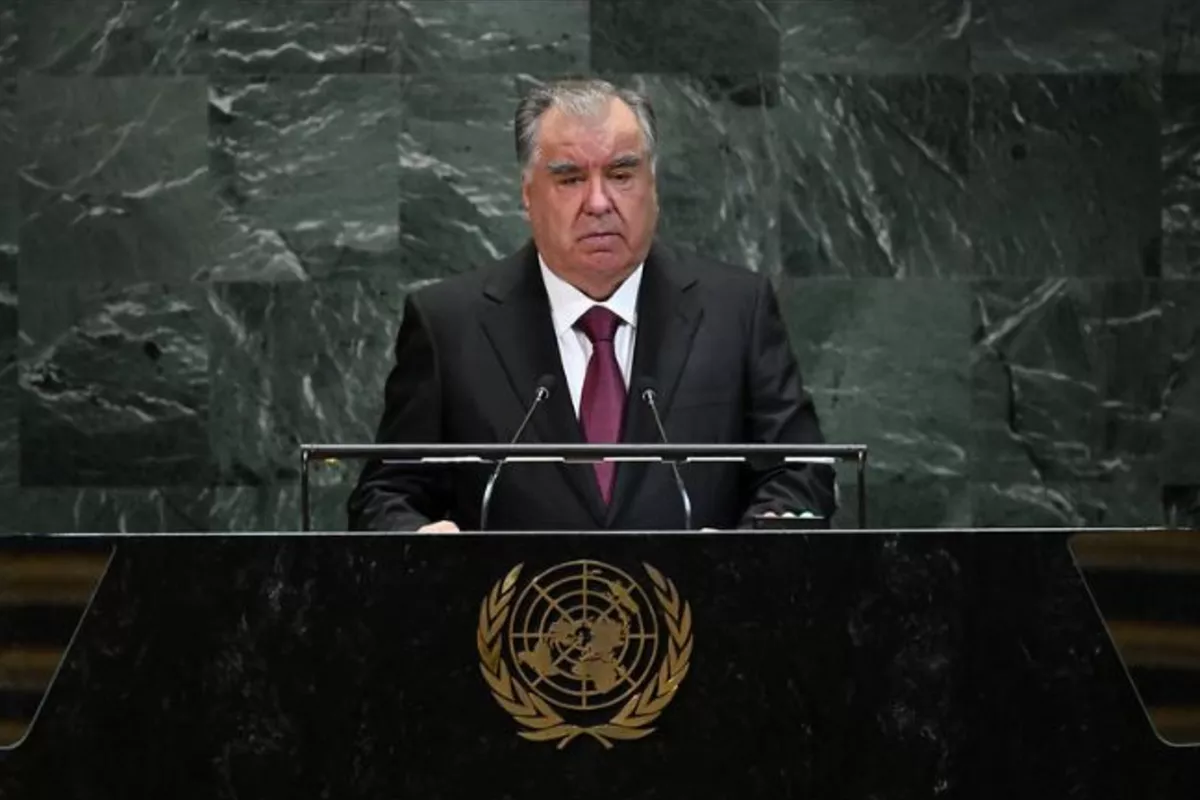
photo: Asia Plus
Speaking before world leaders at the 80th session of the United Nations General Assembly, President of Tajikistan Emomali Rahmon delivered a wide-ranging address calling for renewed international solidarity and urgent reforms to tackle mounting global challenges.
The speech, posted on the official presidential website, struck a tone of both alarm and ambition amid a changing world order, The Caspian Post informs via Tajik media.
Rahmon described the international landscape as “increasingly complex” and reaffirmed the UN’s vital role as a platform for dialogue, cooperation, and global security. He urged all nations to recommit to international law and to act together in defense of global order.
A major focus of his remarks was the existential threat posed by climate change, especially in vulnerable mountainous countries like Tajikistan. He warned of accelerating glacier melt, ecological degradation, and the diminishing integrity of water sources, asserting, “We must not remain indifferent to the problems associated with the source of human life - water.” Rahmon invited UN member states to join the 2026 High-Level International Conference in Dushanbe, part of his country’s ongoing Dushanbe Water Process.
On the economic front, Rahmon appealed for fairer financial support to developing, landlocked, and mountainous nations. He criticized existing international financial systems, stating that many countries remain trapped in cycles of poverty, debt, and disaster-induced crises, worsened by the COVID-19 pandemic.
Turning to global security and governance, Rahmon pressed for stronger compliance with international norms and peaceful conflict resolution. He proposed that the UN General Assembly declare an “International Year of Legal Education” to foster respect for legal standards globally. Additionally, he called for a UN resolution establishing a “Decade for Strengthening Peace for Future Generations,” as a framework for long-term cooperation.
Addressing regional hotspots, he urged a durable ceasefire in Gaza, reaffirmed support for a Two-State Solution, and emphasized stability and development in Afghanistan as a shared priority. Rahmon also endorsed the “UN 80” and “UN 2.0” agendas for reform, as well as the Secretary-General’s Vision for a Modern UN System, highlighting the Pact for the Future as an important mechanism for global peace and development.
Highlighting the role of innovation, Rahmon spoke about the promise of digital technologies and artificial intelligence in advancing the Sustainable Development Goals, while cautioning about rising risks from cybercrime. He advocated for embedding cybersecurity within collective security strategies.
He also commended the UN Office of Counter‑Terrorism for its work in supporting member states and called for strengthened global cooperation to confront evolving security challenges.
In closing, President Rahmon reaffirmed Tajikistan’s commitment to multilateralism and declared his country ready to collaborate with all UN members to address the pressing issues of our time.
Share on social media